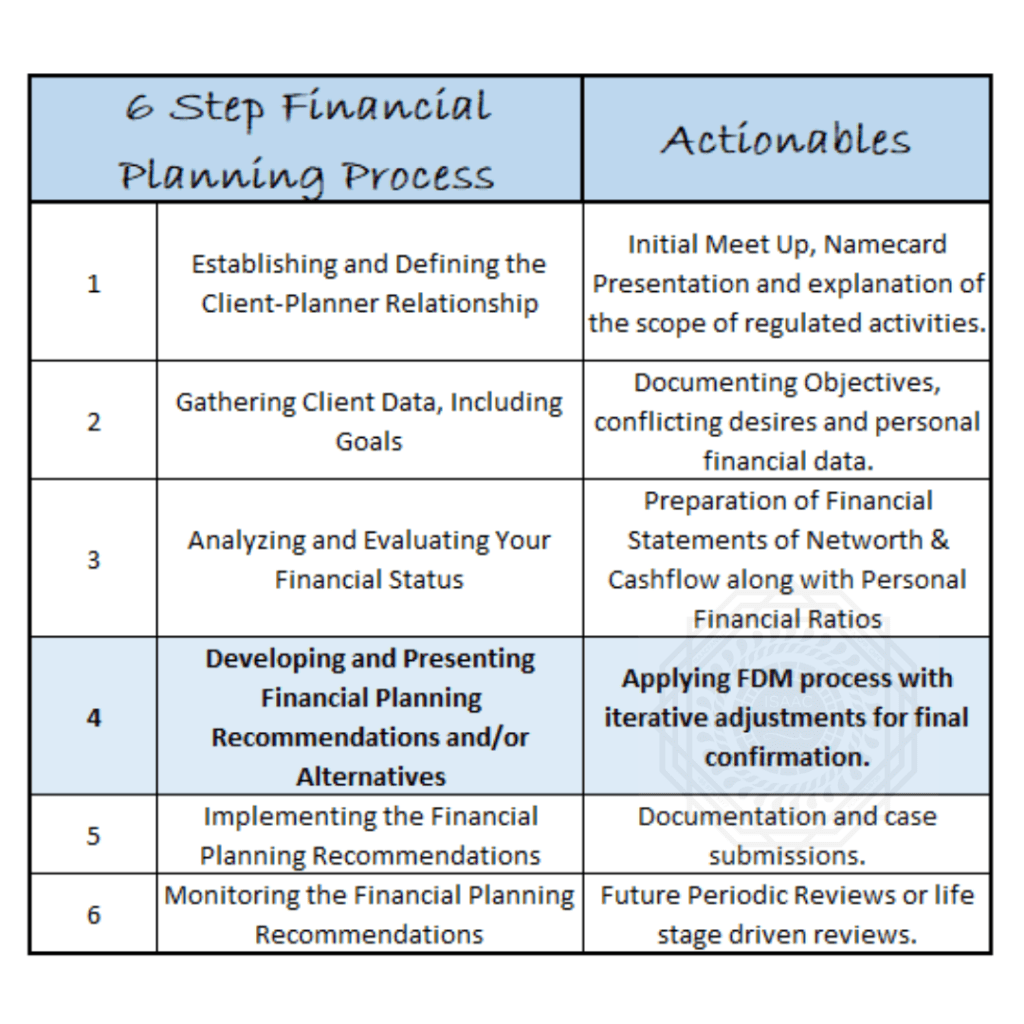
As a Risk Manager, you will be expected to work from Monday to Friday between 9 and 5, although senior positions may have longer hours. If you are working in larger organizations, you may be expected to spend some time out of the office visiting other offices and sites. Senior risk managers may also spend time attending conferences. Experienced risk managers can also set up their own risk management consultancy. As the world becomes increasingly globalised, the need for risk managers is growing.
Position Description: Provide consultative advice to clients on personal risk management solutions
As the Personal Insurance Specialist, you will be responsible to serve high-net worth clients. This role requires a strong attention to detail, good organizational skills, and a desire to build strong client relationships. You will schedule appointments, visit clients, and provide advice and guidance on personal risk management options.

Responsible for the preparation of proposals on Executive Risk Management Prospects.
The role of a risk management analyst involves analyzing the risk environment and related documentation to develop plans for mitigating risks. They are responsible for reviewing and developing risk assessment reports. Candidates who want to be risk management analysts must have a degree and several years of relevant work experience.
Salary ranges available for professionals in risk management
Based on where they live, the salary ranges of risk management professionals can be very different. Entry-level jobs typically pay $86,000 to $107,000 annually, with the top earners making more than $170,000 annually. Risk management entry-level positions often pay less than those in finance and insurance. As the field expands, however, there are more opportunities to be promoted.
The job of a risk management specialist is varied and may include the observation and recording of operational and enterprise risks. They also collect data and put together risk-assessment tools. They may also prepare reports and devise mitigation strategies to address specific risks. Risk managers usually have a PhD in a related area.

Although the skills of risk management professionals are similar, their job descriptions can be quite different. One person may be responsible in business development while the other may be responsible in risk management. Both positions require knowledge of financial statements, customer service, and accounting. Risk managers typically earn more than their counterparts, while administrators earn less than their counterparts.
FAQ
How can I get started in Wealth Management?
It is important to choose the type of Wealth Management service that you desire before you can get started. There are many Wealth Management services available, but most people fall under one of the following three categories.
-
Investment Advisory Services – These experts will help you decide how much money to invest and where to put it. They offer advice on portfolio construction and asset allocation.
-
Financial Planning Services - This professional will work with you to create a comprehensive financial plan that considers your goals, objectives, and personal situation. A professional may recommend certain investments depending on their knowledge and experience.
-
Estate Planning Services - An experienced lawyer can advise you about the best way to protect yourself and your loved ones from potential problems that could arise when you die.
-
If you hire a professional, ensure they are registered with FINRA (Financial Industry Regulatory Authority). You can find another person who is more comfortable working with them if they aren't.
How to Beat the Inflation with Savings
Inflation refers the rise in prices due to increased demand and decreased supply. It has been a problem since the Industrial Revolution when people started saving money. The government attempts to control inflation by increasing interest rates (inflation) and printing new currency. You don't need to save money to beat inflation.
For instance, foreign markets are a good option as they don't suffer from inflation. An alternative option is to make investments in precious metals. Because their prices rise despite the dollar falling, gold and silver are examples of real investments. Investors concerned about inflation can also consider precious metals.
How to manage your wealth.
The first step toward financial freedom is to take control of your money. Understanding how much you have and what it costs is key to financial freedom.
You should also know how much you're saving for retirement and what your emergency fund is.
If you fail to do so, you could spend all your savings on unexpected costs like medical bills or car repairs.
Statistics
- If you are working with a private firm owned by an advisor, any advisory fees (generally around 1%) would go to the advisor. (nerdwallet.com)
- A recent survey of financial advisors finds the median advisory fee (up to $1 million AUM) is just around 1%.1 (investopedia.com)
- Newer, fully-automated Roboadvisor platforms intended as wealth management tools for ordinary individuals often charge far less than 1% per year of AUM and come with low minimum account balances to get started. (investopedia.com)
- According to a 2017 study, the average rate of return for real estate over a roughly 150-year period was around eight percent. (fortunebuilders.com)
External Links
How To
How to become Wealth Advisor
You can build your career as a wealth advisor if you are interested in investing and financial services. This profession has many opportunities today and requires many skills and knowledge. These are the qualities that will help you get a job. Wealth advisers are responsible for providing advice to those who invest in money and make decisions on the basis of this advice.
The right training course is essential to become a wealth advisor. The course should cover topics such as personal finance and tax law. It also need to include legal aspects of investing management. Once you've completed the course successfully, your license can be applied to become a wealth advisor.
Here are some tips on how to become a wealth advisor:
-
First, it is important to understand what a wealth advisor does.
-
Learn all about the securities market laws.
-
Learn the basics about accounting and taxes.
-
After completing your education you must pass exams and practice tests.
-
Final, register on the official website for the state in which you reside.
-
Get a work license
-
Show your business card to clients.
-
Start working!
Wealth advisors typically earn between $40k and $60k per year.
The salary depends on the size of the firm and its location. The best firms will offer you the highest income based on your abilities and experience.
We can conclude that wealth advisors play a significant role in the economy. It is important that everyone knows their rights. It is also important to know how they can protect themselves from fraud or other illegal activities.